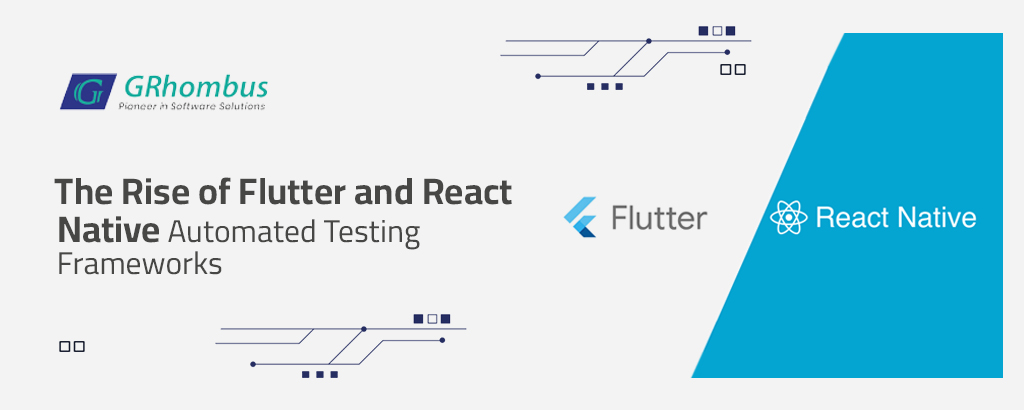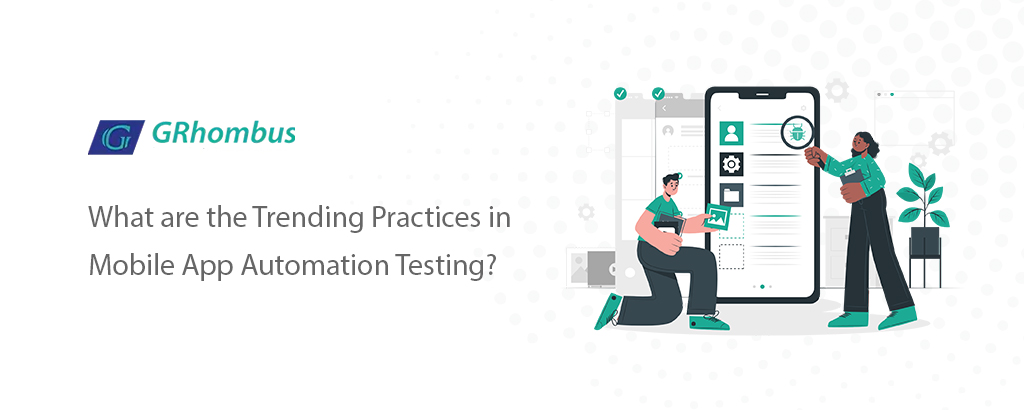Today, mobile phones have evolved to be much more than just communication devices as they were originally envisioned. Right from fitness tracking to maps and what not, various applications on mobile phones have made them versatile.
Now a mobile phone application needs to have a framework to be developed. Two of the leading frameworks are Flutter created by Google and React Native created by Facebook. Both of them are open-source frameworks and offer the ability to build high-quality applications for both iOS and Android environments. With rich widgets and ability to deploy on multiple platforms, there is a lot of time and effort saved.
However, any solution needs to be tested before deployment. Hence, there needs to be reliable testing solutions. Automated testing is critical as it allows developers to check and fix bugs proactively, ensure stability and software product quality. This will in turn translate to better user experience, faster rollout and reduced time to market.
The main advantages of automated testing frameworks are:
- Increased efficiency
- Reduced manual intervention and errors associated with the same
- Improved user experience
- Assured cross-platform compatibility
To support testing needs of Flutter apps, the below automated testing frameworks have emerged.
1. Flutter Driver
Google has provided Flutter Driver as the official testing framework. User interactions can be simulated and app behavior can be verified easily. Further, it is continuously updated and has many APIs and tools for testing. User behavior and pathways can be tested as a whole. The Dart VM’s hot-reload feature, allows to quickly reload the app’s code during testing. This in turn improves efficiency by saving time during testing iterations.
2. Mokito
The programming language used in Flutter is Dart. Mockito is a powerful framework for this language. Specific parts of the app can be tested in isolation and various simulations can be run. Further, Mokito can be used in conjunction with Flutter Driver to write a complete suite of tests and simulations.
The automated testing frameworks for React Native are as below.
3. Jest
React Native works on Java and Jest is widely adopted for React Native development. Jest has some excellent features like:
- Mocking – Ability to mock in-built dependencies like functions, API calls etc
- Ability to undertake asynchronous testing
- Ability to generate reports that show how much of the code is covered by tests
- Snapshot testing feature where the unintended changes in UI can easily be singled out.
- Features like test watchers which only run tests on the recent changes.
- Seamless integration
4. Detox
Detox is an end-to-end testing framework specifically designed for React Native apps. It allows for fast simultaneous and reliable testing across multiple devices. It also integrates easily with CI (continuous integration) and CD (continuous deployment) systems and rich API support.
Why GRhombus Technologies?
GRhombus Technologies is a leading software development company in USA and has the best IoT testing and mobile app testing experts in the business. From smart devices to technology stacks, we have end-to-end capabilities in the IoT domain.
We are led by a dedicated and experienced team and take pride in offering cutting edge solutions to any business challenge. We have partnered with leading brands and names from different countries like Cynergy of Isreal, uPonder Labs USA etc.
We have delivery centres in different locations in India and partner offices in the USA and Nethelands. For any additional queries or business needs, feel free to contact us!

